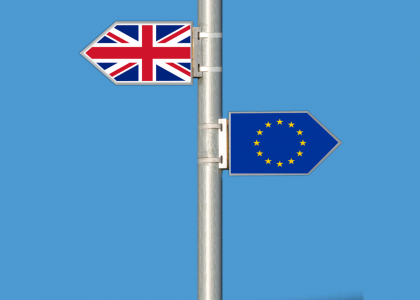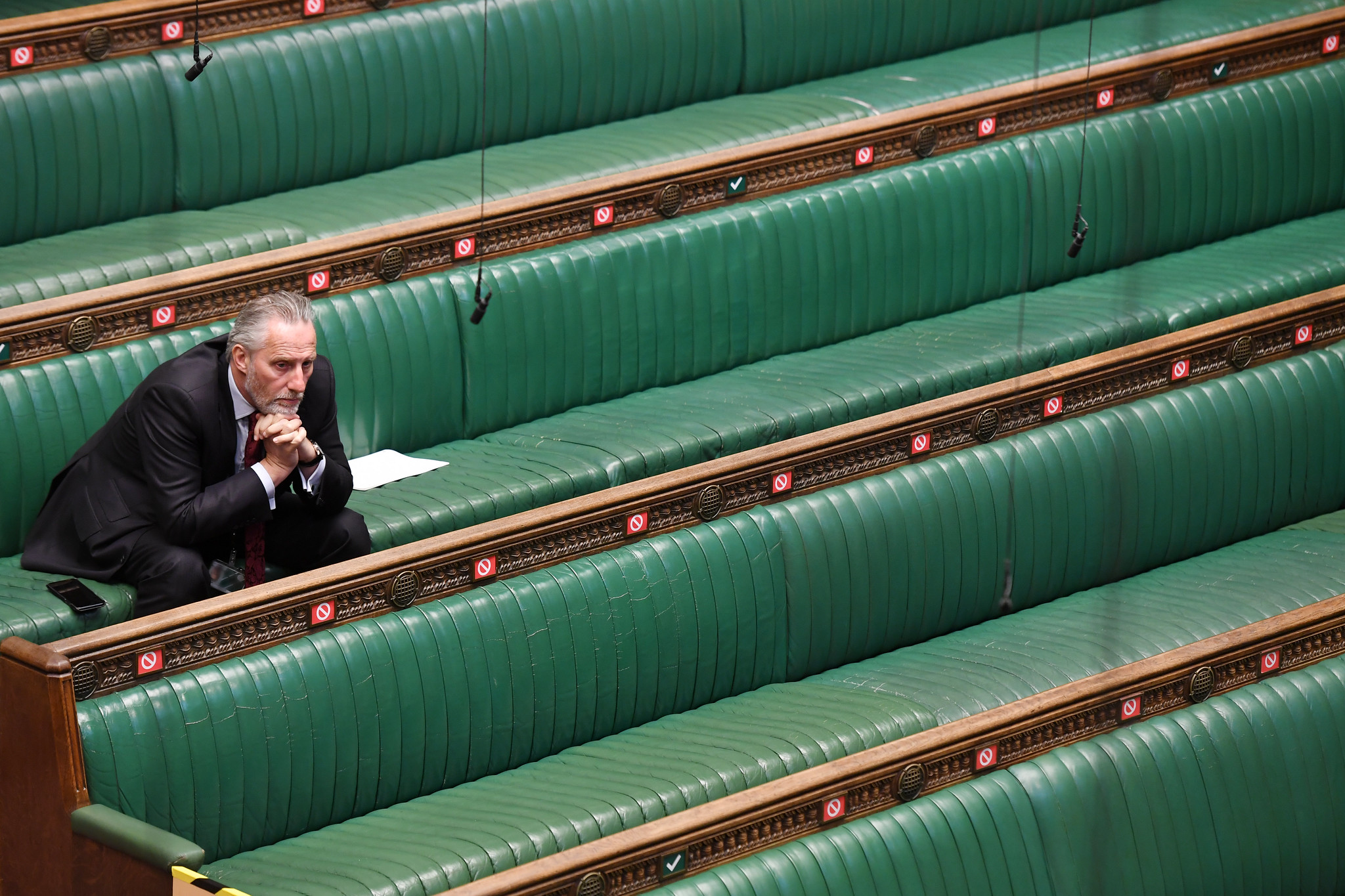Researchers at UEA investigate what ‘British values’ means to Muslims living in the region.

Channel 4’s recent programme My Week as a Muslim, in which a non-Muslim woman lived with a Pakistani family for a week, was a reminder of the ongoing curiosity about Muslim life in British society. The programme was criticised for its use of “brownfacing” as the woman wore dark make-up and a niqab to appear Pakistani – highlighting the resilience of assumptions that British Muslims are non-white or somehow non-British.
This abiding curiosity about how Muslims live and what Muslims think frequently stems from enduring concerns around integration. In the past, such concerns were usually couched in the language of multiculturalism or community cohesion, but today they are often centred around the idea of “British values”. While the meaning of the term remains unclear, it saturates public life in areas as diverse as counter-radicalisation policy and education. Yet, in one recent study, around half of British adults surveyed believed Islam to be incompatible with British values.
For the last year, we have been working with Muslims across eastern England and East Anglia who have produced their own short films about British values as part of an ongoing research project. Doing so, we hoped, would tell us a little more about what the term British values means to Muslims in an often neglected region. It might also shed light on how those Muslims feel when they encounter the term in media headlines or opinion polls.
Although we’re mindful of the dangers of generalisation – and cautious that these reflections are still provisional – we have picked out three themes that recur in a number of our films and interviews with those who made them.
Elusiveness
The term British values was often seen by our filmmakers as an elusive and ambiguous one. Some, such as Shukria from Bedford, were confident in articulating the term precisely – in her case as “having the freedom to express yourself however you want”. But many others professed to not knowing what the term means.
Haroon, a college student in Norwich, told us: “I can’t really speak on British values, because I don’t know anything about them … to me it’s a weightless word, it has no meaning to it.” Fatima, from Bedford, held a similar view: “To be honest, I don’t know, it doesn’t mean anything to me … We were never taught what British values were.”
For some, this ambiguity was even more pronounced when they reflected on whether anything is distinctively British about values such as “democracy, the rule of law, individual liberty and the mutual respect and tolerance of different faiths and beliefs” – the language the Home Office uses to define the term. As one of the people interviewed put it, such values “should be universal regardless – British, non-British, faith or no faith”.
Compatibility
Despite this ambiguity, the British Muslims we spoke to saw some similarities between British values and values associated with Islam. As one interviewee put it:
If I think about British values and I think about my faith, I think there’s a lot of common ground. And common ground for me is serving my community, looking after my neighbours, regardless of whoever they are.
The claim that a vague and ambiguous set of British values actually complements Islamic values could appear counter-intuitive. But the indistinctness of the term might actually make the idea of British values easier to square with other sets of religious or non-religious values. A desire to identify with the Britishness of these values – or to be seen by others to identify with this Britishness – could also be more important than concerns about their specific content or meaning.
Dog-whistle politics
There also seems to be genuine public concern among those with whom we spoke about how the term British values is used in politics and the media. Many people on this project pointed to the manipulation of the term by politicians and media commentators to serve dog-whistle politics, often in the aftermath of violent and tragic events. In the words of one anonymous participant: “Whenever there’s an attack, you have the government … start talking about [British] values.”
In this way, the term British values was seen by two of those we spoke to as a coded “warning” to specific communities, which contributed to “divisive” and “alienating” politics. These sentiments can also offer insights about how those exposed to the term within classrooms or places of worship might feel.
The next stage of our research will be to carry out a series of focus groups in East Anglia with Muslim and non-Muslim participants to dig further into the meaning of British values. Wherever that takes us it is clear that the term remains a contested and contentious one, that must be used with care by politicians, commentators, and others.
Lee Jarvis is a Professor of International Politics, School of Politics, Philosophy, Language and Communication, University of East Anglia
Eylem Atakav is Senior Lecturer in Film and Television Studies, University of East Anglia
Lee Marsden is a Professor of International Relations, University of East Anglia
This article was originally published on The Conversation.
Read the original article.






If this is the case then there is no reason for Sharia Law in this country.
Bigamy is against the law so a Muslim ‘marriage’ should mean the same as a marriage recognised by British Law. Therefore a Muslim man with several wives is responsible for the upbringing and financial security of all his children whoever their mother is not fall back on the safety of our welfare state for support.
Muslims also marry their cousins not a British value and not a very sensible one either, putting great pressure on the NHS and supporting services.
Child abuse and neglect is also illegal. Therefore FGM is illegal.
Finally as a Christian concept that women are equal to men before God, the fact that Muslim men believe women to have a value to half that of men is not therefore a British value.
What is/who is God. At the very basic level, the question should be “who is your role model”. It could be David Beckham, Carl Marx, Elvis Presley, Mother Theresa.
Jesus should be the Christian role model as Mohammed is the role model for Muslims. We could say ‘The Church’ has corrupted the teachings of Jesus just as Islamic teachers have corrupted the teachings of Mohammed and therefore the teachings of Mohammed and Jesus are one and the same. Sadly Jesus teaches freedom, Islam means submission.
This is why Marxists, Islamists, Humanists and Atheists desire to undermine and mock Jesus. For the God of Jesus who upholds those tenets of peace, justice, forgiveness, compassion, love, wisdom, equality, kindness, gratefulness, non judgemental , free speech with responsibility, freedom of thought, do not fit easily with political correctness, control of the masses by brainwashing, threats, accusations of Islamophobia, racism, homophobia and all the outpouring of venum displayed by Remainers against those who do not wish to be controlled by a supranational undemocratic dictatorship.
Universities have been brainwashing students into Marxism and remaining in the EU. Instead of allowing for innovation, critical and creative thinking I,e. Freedom of thought. You have been steering our student body to the entrenched Marxist left wing ideology endemic within Universities. Now it appears that only those who tow the party line do well, not because they are any cleverer than those who do not but to ensure those in power are of the same ilk. Again this is evidenced by the lie that those who voted to remain in the EU are more likely to have had a University education. Again this isn’t a measure of intelligence, common sense or clarity of thought based upon observation and wisdom but on the success of your brain washing techniques. I challenge the myth that only the more intelligent voted to remain in the EU.
All this is part of the undermining of British values. Those values are not only British but European. Each country in the EU were Christian and although they had differing traditions, customs, dress, language and finance we valued and celebrated that diversity. On the one hand this could be said to have a multicultural ethic but that has been skewed deliberately and used as a tool to invite a culture which undermines the Christian culture of the U.K. and those countries in the EU.
Sad, but interviewing a group of Muslims in the guise of questioning what is British culture is a sad reflection of just how distanced our universities are from the lives of citizens outside the University bubble.
One should have to ask why our students are depressed and suicidal when we adults feel we are living in an alternative universe to that we have been accustomed to calling ‘home’. Do not forget, the majority are citizens of somewhere, they value, feel safe in, contribute to, communicate with, not the citizens of nowhere beloved of our University boffins.